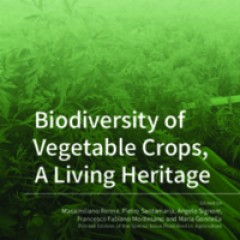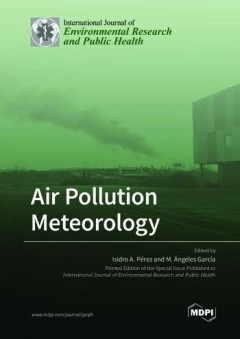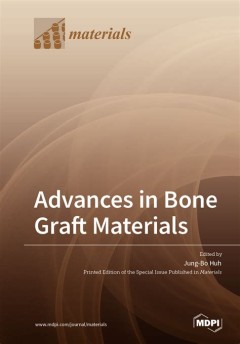Filter by

All Culture is Local
This book is an outcome from a five year Australian Research Council funded research project, CAMRA cultural asset mapping in regional Australia project (LP0882238). Over this time four universities, four local governments, and peak regional, state and federal agencies sought to develop knowledge that would enable better informed planning for arts and cultural development in rural and regional …
- Edition
- -
- ISBN/ISSN
- -
- Collation
- 120 hlm; ill., lamp.,
- Series Title
- -
- Call Number
- -

Bioeconomy and Global Inequalities : Socio-Ecological Perspectives on Biomass…
This open access book focuses on the meanings, agendas, as well as the local and global implications of bioeconomy and bioenergy policies in and across South America, Asia and Europe. It explores how a transition away from a fossil and towards a bio-based economic order alters, reinforces and challenges socio-ecological inequalities. The volume presents a historically informed and empirically r…
- Edition
- -
- ISBN/ISSN
- 978-3-030-68943-8
- Collation
- 338
- Series Title
- -
- Call Number
- -

Biodiversity of Vegetable Crops, A Living Heritage
Intensive agriculture has generally resulted in higher productivity, but also in a trend towards decreasing levels of agro-biodiversity, which represents a key point in ensuring the adaptability and resilience of agro-ecosystems in the global challenge to produce more and better food in a sustainable way. The biodiversity of vegetable crops includes genetic diversity—both as species diversity…
- Edition
- -
- ISBN/ISSN
- ISBN 978-3-03897-721-6
- Collation
- 174
- Series Title
- -
- Call Number
- -

AlGaN/GaN-HEMT power amplifiers with optimized power-added efficiency for X-b…
This work has arisen out of the strong demand for a superior power-added efficiency (PAE) of AlGaN/GaN high electron mobility transistor (HEMT) high-power amplifiers (HPAs) that are part of any advanced wireless multifunctional RF-system with limited prime energy. Different concepts and approaches on device and design level for PAE improvements are analyzed, e.g. structural and layout changes o…
- Edition
- -
- ISBN/ISSN
- 9783866446151
- Collation
- 230 hlm; ill., lamp.,
- Series Title
- -
- Call Number
- -

Alfred North Whitehead
Originally published in 1990. The second volume of Victor Lowe's definitive work on Alfred North Whitehead completes the biography of one of the twentieth century's most influential yet least understood philosophers. In 1910 Whitehead abruptly ended his thirty-year association with Trinity College of Cambridge and moved to London. The intellectual and personal restlessness that precipitated thi…
- Edition
- -
- ISBN/ISSN
- 9781421434223
- Collation
- 418 hlm; ill., lamp.,
- Series Title
- -
- Call Number
- -

Alexithymia: State of the Art and Controversies. Clinical and Neuroscientific…
This eBook is a collection of articles from a Frontiers Research Topic. Frontiers Research Topics are very popular trademarks of the Frontiers Journals Series: they are collections of at least ten articles, all centered on a particular subject. With their unique mix of varied contributions from Original Research to Review Articles, Frontiers Research Topics unify the most influential researcher…
- Edition
- -
- ISBN/ISSN
- 9782889631063
- Collation
- 158 hlm; ill., lamp.,
- Series Title
- -
- Call Number
- -

Albania on the Move
Starting from a cluster of villages in southeast Albania, Albanian-born British scholar Julie Vullnetari follows rural migrants to domestic urban destinations such as Tirana and abroad to Thessaloniki in Greece. Vullnetari has conducted more than 150 interviews, and drawing upon this rich empirical material, she offers a profound account of Albanian migration from start to finish. A rare, exhau…
- Edition
- -
- ISBN/ISSN
- 9789089643551
- Collation
- -
- Series Title
- -
- Call Number
- -

Arrested Welcome
Interpreting the meaning of hospitality in an unwelcoming political moment Amid xenophobic challenges to America’s core value of welcoming the tired and the poor, Irina Aristarkhova calls for new forms of hospitality in her engagement with the works of eight international artists. In this first monograph on hospitality in contemporary art, Aristarkhova employs a feminist perspective to critic…
- Edition
- -
- ISBN/ISSN
- 9781452963013
- Collation
- oer.unej.ac.id
- Series Title
- -
- Call Number
- -

Air Pollution Meteorology
Although air pollution is usually linked with human activities, natural processes may also lead to major concentrations of hazardous substances in the low atmosphere. Pollutant levels may be reduced when emissions can be controlled. However, the impact of meteorological variables on the concentrations measured may be noticeable, and these variables cannot be controlled. This book is devoted to …
- Edition
- -
- ISBN/ISSN
- 9783036525525
- Collation
- 164hlm; ill., lamp.,
- Series Title
- -
- Call Number
- -

Advances in Bone Graft Materials
This reprint considers studies related to the bone graft materials used for bone regeneration in dental and medical areas, and particularly studies on new development and development directions, such as synthetic bone and heterologous bone. Bone regeneration is one of the most important challenges in medicine. Previously, patients' autologous bones were collected and transplanted for bone regen…
- Edition
- -
- ISBN/ISSN
- 9783036570235
- Collation
- 190 hlm; ill., lamp.,
- Series Title
- -
- Call Number
- -
 Computer Science, Information & General Works
Computer Science, Information & General Works  Philosophy & Psychology
Philosophy & Psychology  Religion
Religion  Social Sciences
Social Sciences  Language
Language  Pure Science
Pure Science  Applied Sciences
Applied Sciences  Art & Recreation
Art & Recreation  Literature
Literature  History & Geography
History & Geography